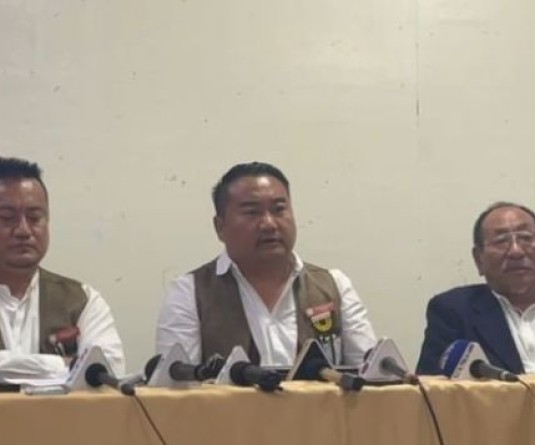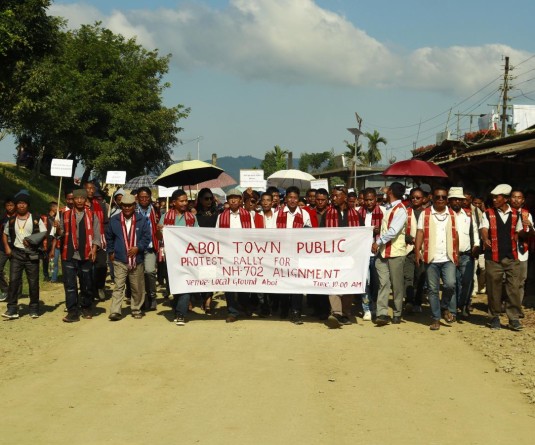
AYO seminar deliberates on improvising economy in the State
Morung Express News
Zubza | August 27
In commemoration of its 25 years celebration, Angami Youth Organization (AYO) held its second seminar on the topic ‘Economy’ on August 27 at WAPO Hall, Sechü Zubza. The resource persons for the seminar were Rovi Chasie, entrepreneur, Richard Belho, architect, and Kesao Kesiezie, businessman. The panelists for the seminar were Khris Kire, businessman, Neivikuolie Khatsü, social activist, and Dr. Vilar Solo, entrepreneur.
In his keynote address, Prasielie Pienyü, Co-convenor, Organising Committee highlighted the aims and objectives of the seminar. Under the theme ‘Kelhou Kevi ra’, the AYO will be holding its 25 years of celebration on November 4 and 5. As a preface to the celebration, seminars on the topics of Ethos, Environment, Economy and Education are being held in the four regions of the Angami community.
Despite being blessed with one of the best geographical regions, climatic conditions, flora and fauna, and natural resources, there are many challenges ahead and in the course of the seminars, these challenges will be discussed, said Pienyü.
Rovi Chasie, founder of Livelihood Enhancement Center spoke on the position of the present economy in Nagaland where there is very less cash inflow within the State with most of the goods, services, and every essential commodity being imported from outside the State. Other areas where cash has been spent outside are through education and medical treatments.
‘How do we generate wealth within the State?’ was one question put forward to the participants by Chasie. Initiatives such as independently managing one’s livelihood such as growing and rearing for one’s own consumption, attempts to circulate cash within the State and to pull in money from outside through tourism were major points highlighted by Chasie. Youngsters need to be taught about savings at a young age, asserted Chasie, who also expressed the importance of innovation of new ideas to generate economy and to build and promote the concept of ‘Made in Nagaland’. Although the trend has started, very few products of Nagaland go outside.
Despite its accessibility and proximity, Nagaland still has an under-developed economy, viewed Architect Richard Belho, who pointed out the setbacks of business among Nagas. The problems are mostly to do with the mindsets and attitude of Nagas. “The mindset of working under an authority/authoritative figure is absent. And our idea of success is wrong. Success is not just about building a house and receiving the rent. The hunger to progress, to be better is absent among Nagas,” said Belho. He added that mediocrity is the worst quality and idleness, the greatest enemy of the Nagas. Belho also asserted that Nagaland needs policy changes where it needs to invest in education followed by skill and labour. Further, the value of time and money, and civic sense need to be incorporated in schools. The problem of drop outs and the failure to take drop outs in schools which has a ripple effect on the Naga society was also impressed upon the participants, where Belho mentioned that many of the drop outs tend to become idle and engage in anti social activities.
“Monopoly business is not our strength, we need competitive business,” stated Belho suggesting that organizations like AYO can initiate opportunities for drop outs where villages can start Skill Resource Centres for training the people. Instead of exploiting natural resources, the State needs to explore livelihood avenues, it was added.
Panelist Khris Kire also stressed on the significance of keeping oneself updated with state policies and national policies. Nagaland being a landlocked state, the peoples’ minds also tend to be landlocked, humored Kire, who however suggested the term ‘land-linked’ for Nagaland which has geographical advantages with its connectivity to several states and Myanmar. “Plan economy in such a way that it is rigid and robust- one that is weatherproof. We need to plan on how to sustain economy even in the worst times, make it weatherproof so that we are able to sustain in any kind of situation,” stated Kire.





